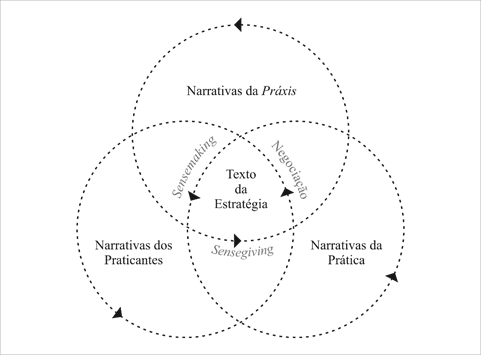Abstract
This research aims to understand how strategy becomes a social practice when submitted to various capitalistic logics. The study was developed from a narrative perspective in a social enterprise whose goal is to enhance the results of Special Education Schools through management. Data analysis was based upon the typology proposed by O’Connor (2002) and from narrative features discussed by Pentland (1999). For something to become a social practice in a context where it is not, it undergoes an exercise where it is qualified as sensegiving and sensemaking. Observed results show that: (a) the narrative as developed in conversation with investors is loaded with situational histories; (b) the narrative as developed in conversation with the public is loaded with generic histories; (c) the meaning given by the strategists and constructed by the different practitioners is presented as a narrative about the meaning negotiating process, where legitimacy is based on personal histories and plausibility on generic and situational histories. In conclusion, we understand that strategy becomes a social practice in that its meanings come to be shared in this new space and, thus, come to guide the ordinary activities (praxis) of strategy.
Key words:
strategy as social practice; narratives; strategy texts; sensemaking; sensegiving

 Thumbnail
Thumbnail
 Thumbnail
Thumbnail
 Thumbnail
Thumbnail

 Fonte: Adaptada de
Fonte: Adaptada de  Fonte: Elaborada pelos autores
Fonte: Elaborada pelos autores